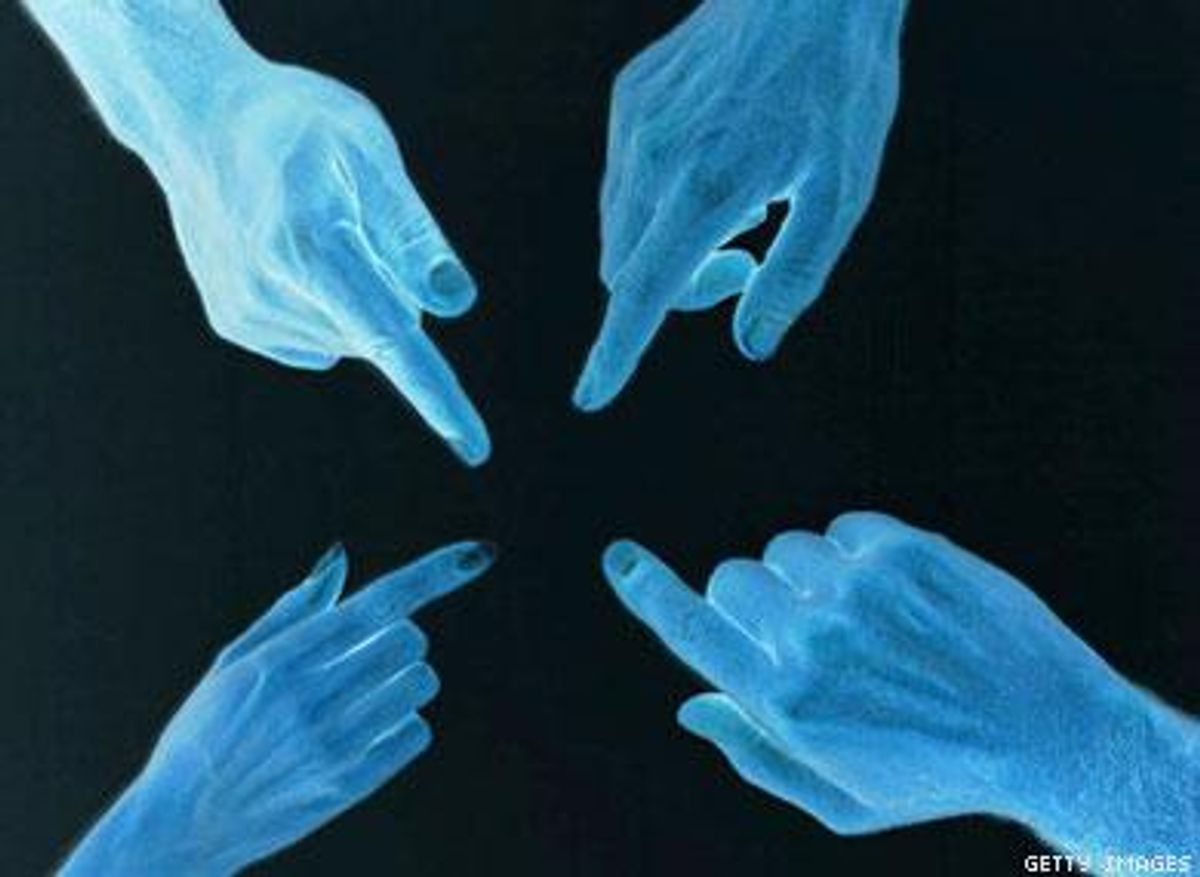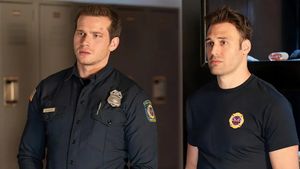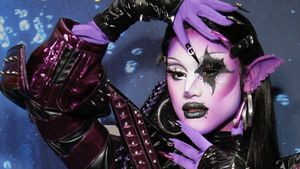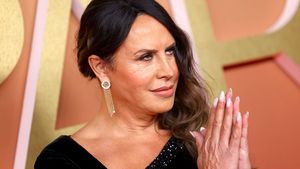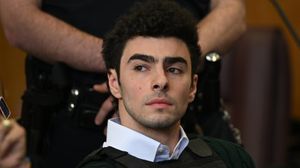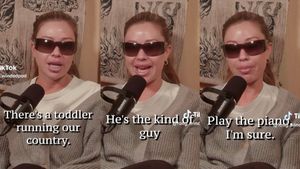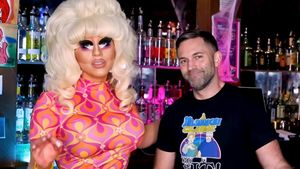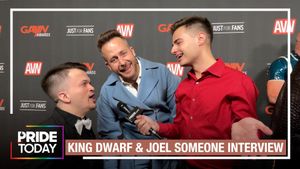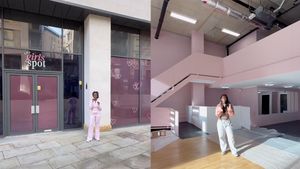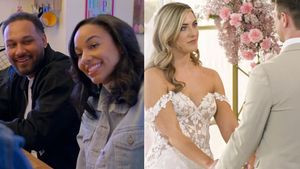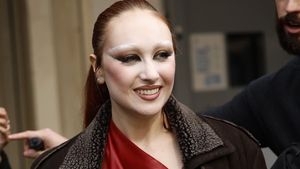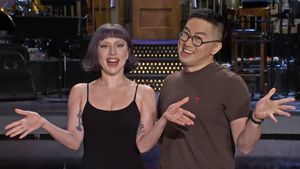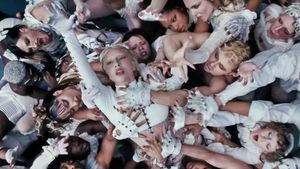The passage of
Prop. 8 and the subsequent fallout show that there is now
a renewed urgency to the debate over gay rights. The time
has come for discussions that avoid placing blame on
one group -- discussions that avoid treating a
group in any way that suggests that group is
monolithic. It's time for discussions that create
harmony, not acrimony. Time for us to understand our
unique connectivity on this issue of human rights and,
in the words of the Dalai Lama, understand our
interdependence.
Clearly,
there's plenty of emotion flying around. Some of the
white gays who felt threatened by the passage of Prop.
8 succumbed to simmering hatred. Some African-American
gays, in response, raged and pointed fingers and
labeled white gays blaming African-Americans for the passage
of Prop. 8 as racist. The game of hate and blame continues.
As a society we
can look at the election of Barack Obama as a symbol of
racial equality. But the man and the campaign he ran are
about far more than his racial background.
Let's model his even-tempered, thoughtful
approach -- his civility in the face of cruelty, his
graceful composure in the face of conflict, his
ability to reach toward those who opposed him and
understand how working with them can further common goals.
For within the community of humanity -- in general and
specifically -- that is what this crisis requires
right now.
There's
always a tendency for people to create little fiefdoms of
belief. I believe x, so this is my camp. You believe
y, so that is your camp. Within the Prop. 8 debate,
such fiefdoms threaten the entire movement. The
bedrock of fiefdoms is made up of hardened prejudices
that create enemies, not allies. "I'm a gay
white male and I think African-American churchgoers
are ignorant and extremely homophobic," or "I'm
a transgender African-American and I think gay white males
are all inherently racist."
Thus everything
said or done is perceived through this filter and
accepted as truth. Us vs. them. It's dogmatic and
shortsighted to continue to think this way.
There's no openness, no space for dialogue.
There's only media-fueled finger-pointing.
It's like that moment when your parent looks at
you and says, "You know better."
We know better.
I sit in a
uniquely schizophrenic position in this movement -- an
out same-sex loving woman, an African-American woman, and a
proud product of the Pentecostal Church (I'm
talking big church hats and speaking in tongues, the
whole nine yards) -- and there's some room for growth
within all these groups.
It's
really time for the gay community at large to raise a flag
for an issue that does not, on its surface, directly
benefit white gay males -- such as the Human Rights
Campaign taking up the charge for hate-crime
victims Sakia Gunn or Rashawn Brazell. When young
African-American teenagers have nooses hung in front of them
at their schools, gay communities will have to show
they care by sending representatives to
demonstrate against such acts, solely on the basis of
universal human rights. I welcome statements from HRC,
the Gay and Lesbian Alliance Against Defamation,
Lambda Legal, and all organizations willing to take a
stand against condemning any group, especially
African-Americans, for the outcome of Prop. 8. In fairness,
GLAAD makes a nod to reason on its website news
alerts, but that's altogether too tame for an
organization that knows how to make itself heard.
As
African-American gays, I think it's time we take the
issue of gay rights to our proverbial parents and
elders within churches, schools, and beyond and say,
"It's not enough that we are tolerated. We ask to be
heard and respected." Wanda Sykes's coming-out was a
courageous act, made more so because she has always
sought to keep her personal life private. But
that's no substitute for the bravery required by
African-American gays not in the spotlight. Wanda Sykes,
Queen Latifah, and Moses himself could come out, and
it wouldn't matter nearly as much to our families
as would living gay and proud within our own spheres
of influence.
As
African-American activists labor with political leaders for
employment or housing, it's perfectly fine to
leverage your position and ask that same
African-American political leader to stand with you on gay
rights. It's not a question any longer of
whether gay marriage is the appropriate issue for the
community to advance. I support any movement that removes
the "otherness" from the discussion around gays. Perhaps
more important, I support any movement that cements
the idea that someone or something can
be "other" without posing a threat to
the mainstream.
The accepted
truth is that the push for gay marriage began as a white-led
movement. But does "white-led" automatically mean "exclusive
to whites"? In Kai Wright's article for TheRoot.com,
he cited a Census report stating that people of color
account for 10.5% of U.S. households headed by
same-sex couples, and those couples are more likely
than their white counterparts to be raising children.
Surely, equality under the law affects them. So if one
is waiting for the cause of same-sex marriage to
directly affect African-Americans, there it is. But
again, being directly affected is not a prerequisite for
passion.
It's foolish
to criticize the diverse denominations of
African-American churches without understanding the role
those institutions have played in African-American
lives. The church provides economic and political
force. The sense of community and connection with a
higher power has helped many to psychologically bear
the pains of second-class citizenship. I stand with those in
the African-American faith community (and there are
growing numbers) who want our churches to shake loose
some of their "religulous" nature, their blind
allegiance to pastor demagogues and narrow ideologies.
But when you
attack the church, you attack the cornerstone of the Civil
Rights movement. Sit-ins and protests were organized in
these churches. Churches were the communication hub
for organizations traveling through the South. People
of all colors ate meals in churches during days of
organizing. It seems that some in the gay community at large
have been too quick to liken the struggles of gay
rights activists to black civil rights activists
without taking the time or having the curiosity to
understand the nature of that struggle at all. The work the
National Black Justice Coalition is doing among
religious leaders with its Black Church Summit is a
step in this direction.
So within this
movement, we each have a role to play. And the integrity
with which we play our roles impacts one another. Human
rights is not a game of selfish gain. You offer your
best and you understand that what you do impacts
people in ways you may never even live to see. So in that
way, the movement must put its long lens on and really begin
the task of forging authentic relationships
within each of these groups in order to reach a common
goal. Enough talking. It's time to go and call my
pastor. I'm doing my part. Will you do yours?
